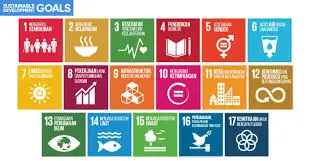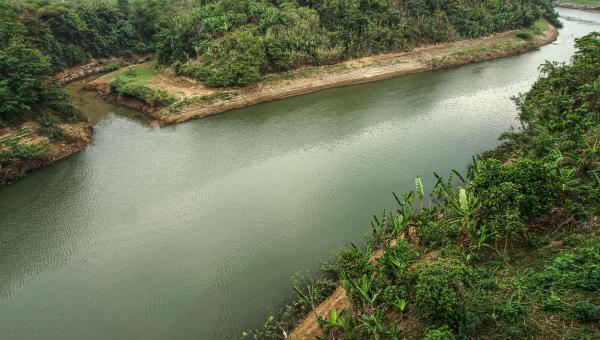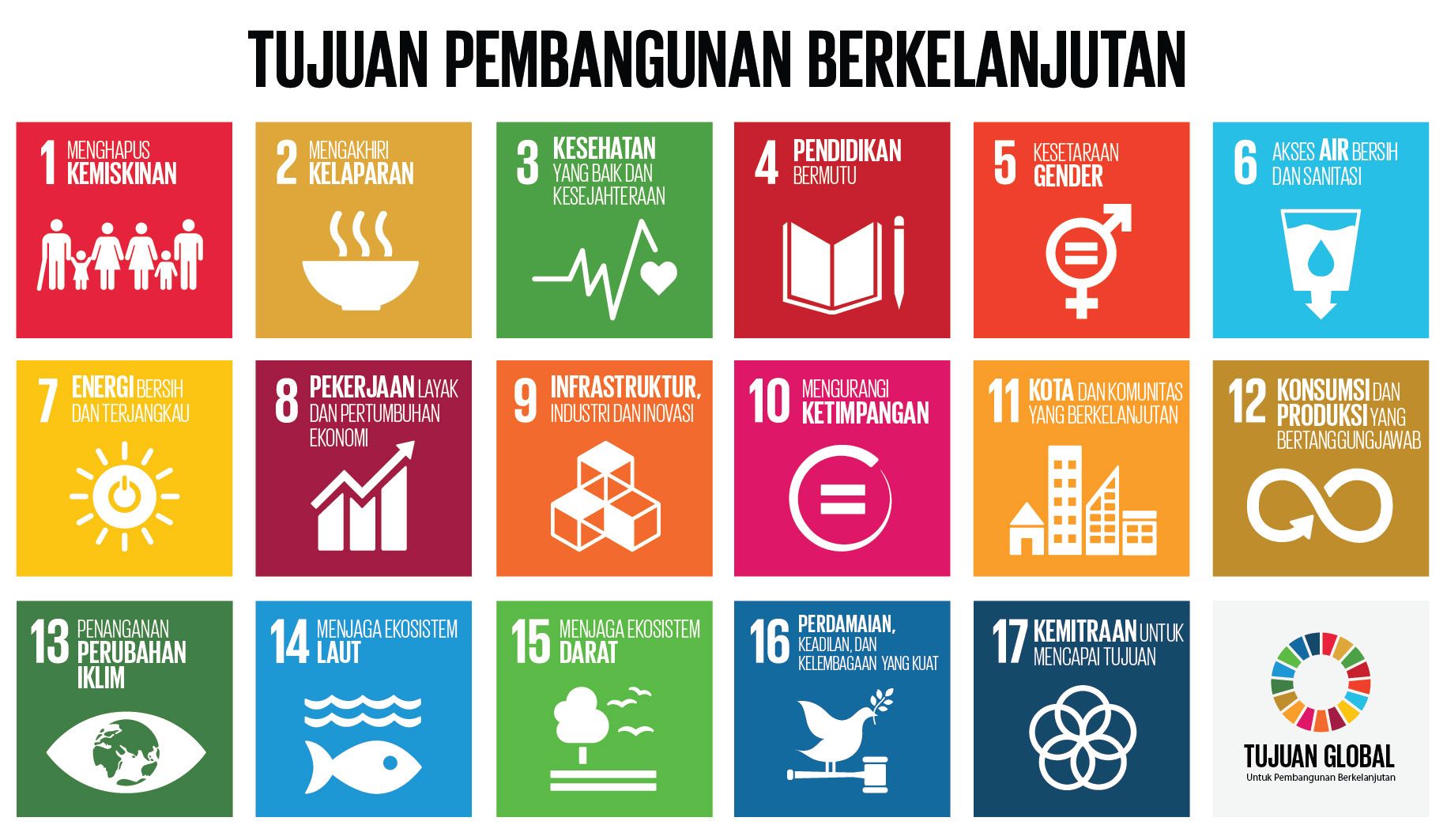In the contemporary landscape of global development, sustainable growth has emerged as a critical goal that nations strive to achieve while addressing pressing social, economic, and environmental challenges. Indonesia, with its rich biodiversity and diverse cultures, is no exception. The nation seeks to balance development with the sustainability of its natural resources. Through public policy updates provided by platforms like SDG2030Indonesia, stakeholders can gain insights into strategies designed to foster sustainable growth across various sectors. This article explores the latest public policy updates in Indonesia aimed at promoting sustainable growth, presenting comprehensive narratives around each update, highlighting their significance, and analyzing their potential impact on the country’s future. Posted by https://sdg2030indonesia.org/
The Role of Sustainable Development Goals in Shaping Public Policy

The Sustainable Development Goals (SDGs), established by the United Nations, serve as a universal call to action to end poverty, protect the planet, and ensure prosperity for all. These goals have become pivotal to public policy formation in Indonesia, informing legislation and strategic planning at multiple levels of governance.
Understanding Sustainable Development Goals
Sustainable Development Goals consist of 17 interconnected objectives that aim to address the global challenges we face, including inequality, climate change, environmental degradation, peace, and justice.
These goals are not merely aspirational; they provide a roadmap for governments, businesses, and civil society to work collaboratively towards a more sustainable world. In Indonesia, the integration of SDGs into public policy is vital for fostering a holistic approach to development that prioritizes social inclusion and environmental protection.
Furthermore, the goals encourage cross-sector collaboration, ensuring that diverse stakeholders contribute to sustainable development efforts. In this way, the SDGs act as a catalyst for innovative solutions to complex problems, driving policy changes necessary for sustainable growth.
Alignment of Public Policies with SDGs
Public policies must align with the SDGs to create effective frameworks for implementation. In Indonesia, this alignment takes place through various initiatives, such as the National Medium-Term Development Plan (RPJMN) and local government regulations.
This alignment is crucial because it ensures that national priorities reflect international commitments to sustainable growth. By integrating SDGs within public policies, Indonesia can leverage international funding, enhance its global standing, and foster partnerships that amplify its development efforts.
Additionally, monitoring and evaluating public policies against SDGs provides a systematic approach to assess progress. It allows policymakers to identify gaps, allocate resources effectively, and adopt best practices learned from other countries’ experiences.
Challenges in Implementing SDGs
Despite the promising framework provided by the SDGs, challenges persist in their implementation. Factors such as bureaucratic inefficiencies, limited financial resources, and socio-political dynamics can hinder progress.
Moreover, the varying capacities of local governments can result in uneven application of policies across regions. Addressing these challenges requires commitment from all sectors of society, increased investment in capacity building, and the establishment of accountability mechanisms.
By acknowledging and tackling these challenges head-on, Indonesia can enhance its public policy landscape, ensuring that sustainable growth remains a priority at every level of governance.
Recent Policy Updates and Initiatives

In recent years, Indonesia has made significant strides in updating its public policies to promote sustainable growth. Various initiatives have been launched across key sectors, reflecting the government’s commitment to aligning with global standards while catering to local needs.
Enhancing Renewable Energy Policies
Renewable energy is a cornerstone of Indonesia’s strategy for achieving sustainable growth. Over the past few years, policy updates have focused on promoting the use of renewable energy sources, such as solar, wind, and biomass, which are abundant in the country.
The government has introduced incentives for both domestic and international investors interested in renewable energy projects. These include tax breaks, feed-in tariffs, and simplified licensing processes.
Such measures aim to attract private sector participation, thus accelerating investments in renewable energy infrastructure. By fostering an environment conducive to innovation and entrepreneurship, Indonesia can transition from fossil fuels to cleaner energy alternatives, reducing greenhouse gas emissions and enhancing energy security.
The shift toward renewable energy not only supports environmental goals but also creates jobs and stimulates economic growth in local communities. The active engagement of local stakeholders, such as community-based organizations and indigenous groups, is essential to ensuring that renewable energy projects are socially inclusive and equitably developed.
Promoting Sustainable Agriculture Practices
Agriculture plays a pivotal role in Indonesia’s economy, yet it faces numerous challenges, including land degradation and food insecurity. Recent public policy updates emphasize the need for sustainable agricultural practices that enhance productivity while safeguarding natural resources.
Policies aimed at promoting agroecological practices have gained traction, focusing on organic farming, permaculture, and integrated pest management. By adopting these methods, farmers can boost resilience against climate change impacts, reduce reliance on chemical inputs, and improve soil health.
Investment in research and development is crucial to support farmers in adopting sustainable practices. Collaborative initiatives between government agencies, universities, and agribusinesses can lead to the development of innovative technologies and training programs that empower farmers to make informed decisions.
Moreover, strengthening market access for sustainably produced goods can provide farmers with higher income opportunities. This approach not only promotes economic stability but also incentivizes environmentally responsible practices that contribute to long-term sustainability.
Enhancing Urban Sustainability Initiatives
Urbanization is a defining trend in Indonesia, with cities experiencing rapid growth. To address urban sustainability challenges, recent public policy updates have focused on creating resilient and livable cities.
Policies promoting green urban planning emphasize the importance of sustainable transportation systems, efficient waste management, and green spaces. Investments in public transport infrastructure and pedestrian-friendly designs can significantly reduce urban congestion and pollution.
Community involvement is also pivotal in shaping urban sustainability initiatives. Engaging citizens in decision-making processes ensures that policies reflect local needs and aspirations, leading to more effective outcomes. Additionally, educational programs can raise awareness about sustainable living practices, encouraging residents to adopt eco-friendly habits.
By embracing a participatory approach to urban planning, Indonesia can create vibrant cities that prioritize the well-being of their inhabitants while minimizing ecological footprints.
Impact of Climate Change Policies on Sustainable Growth

Climate change poses a significant threat to Indonesia, given its vulnerability to rising sea levels, extreme weather events, and biodiversity loss. As such, the government’s focus on climate change policies is integral to achieving sustainable growth.
Nationally Determined Contributions (NDCs)
Indonesia’s commitment to the Paris Agreement includes its Nationally Determined Contributions (NDCs), which outline targets for reducing greenhouse gas emissions. Recent updates to NDCs reflect a more ambitious approach, aiming for a significant reduction by mid-century.
Integrating climate action into various sectors, including forestry, agriculture, and energy, is crucial for meeting these targets. For instance, sustainable forest management practices can enhance carbon sequestration while preserving biodiversity.
Furthermore, the enhancement of climate resilience is paramount. Policymakers must prioritize adaptation strategies that protect vulnerable communities and ecosystems. This includes investing in infrastructure, disaster preparedness, and community-based adaptation initiatives.
Coastal and Marine Conservation Policies
Given Indonesia’s extensive coastline and marine biodiversity, policies addressing ocean conservation are vital for sustainable growth. Recent updates have focused on establishing marine protected areas, enforcing sustainable fishing practices, and controlling plastic pollution.
These policies aim to safeguard marine ecosystems while supporting the livelihoods of coastal communities. By balancing economic interests with environmental protection, Indonesia can ensure that its ocean resources remain viable for future generations.
Additionally, fostering partnerships with local fishermen and engaging them in conservation efforts can lead to more sustainable fisheries management. This collaborative approach empowers communities while contributing to the overall health of marine environments.
Green Financing Mechanisms
To support climate change policies, Indonesia has explored innovative financing mechanisms that promote green investments. Public-private partnerships and green bonds are emerging as viable options to fund sustainable projects.
By leveraging financial resources, Indonesia can scale up initiatives aimed at mitigating climate change impacts and enhancing resilience. Moreover, increasing access to finance for small and medium-sized enterprises (SMEs) engaged in sustainability-focused businesses can drive economic growth while promoting environmental stewardship.
Green financing not only supports climate objectives but also opens new markets and job opportunities, illustrating the interconnectedness of economic and environmental goals.
Strengthening Stakeholder Engagement in Public Policy Development

Effective public policy development relies heavily on stakeholder engagement. In Indonesia, recent updates emphasize the need for inclusive approaches that involve diverse voices in decision-making processes.
Collaborative Governance Models
Collaborative governance models bring together government, civil society, and the private sector to co-create solutions for complex societal challenges. This approach enhances transparency, accountability, and responsiveness in public policy formulation.
By fostering dialogue among stakeholders, Indonesia can tap into collective knowledge and expertise, leading to more effective policies. Collaborative platforms can facilitate discussions around sustainability challenges, allowing participants to share perspectives and propose innovative solutions.
Furthermore, involving marginalized communities in policy development ensures that their unique needs are considered. This inclusivity fosters social cohesion and builds trust between citizens and government institutions.
The Role of Technology in Stakeholder Engagement
Advancements in technology provide innovative tools for enhancing stakeholder engagement. Digital platforms can facilitate information sharing, feedback collection, and public consultations, making the policy development process more accessible.
Online forums, mobile applications, and social media campaigns can empower citizens to voice their opinions and contribute to policy discussions. By harnessing technology, Indonesia can reach a wider audience and engage youth, who often drive social change.
Moreover, data analytics can inform policymakers about community needs and preferences, allowing for evidence-based decision-making. The integration of technology into stakeholder engagement processes represents a transformative opportunity for public policy in Indonesia.
Building Capacities for Effective Participation
To ensure meaningful stakeholder engagement, capacity building is essential. Training programs can equip individuals and organizations with the skills needed to actively participate in the policy development process.
Investing in education and outreach initiatives can raise awareness about the importance of civic engagement and empower communities to advocate for their rights. Furthermore, promoting leadership skills among youth can inspire the next generation of changemakers committed to sustainable growth.
By strengthening capacities for effective participation, Indonesia can cultivate a culture of collaboration and shared responsibility in achieving its sustainable development objectives.
FAQs

What are the Sustainable Development Goals?
The Sustainable Development Goals (SDGs) are a set of 17 global objectives established by the United Nations to address pressing issues such as poverty, inequality, and climate change. They provide a framework for governments and stakeholders to work towards sustainable development.
How does Indonesia incorporate the SDGs into its public policies?
Indonesia aligns its public policies with the SDGs through initiatives like the National Medium-Term Development Plan (RPJMN) and local governance regulations. This integration ensures that national priorities reflect global commitments to sustainability.
What are some examples of recent public policy updates in Indonesia?
Recent public policy updates in Indonesia include enhanced renewable energy policies, promotion of sustainable agriculture practices, and urban sustainability initiatives. These updates reflect the government’s commitment to sustainable growth across various sectors.
How do climate change policies impact sustainable growth in Indonesia?
Climate change policies, such as the Nationally Determined Contributions (NDCs), play a crucial role in mitigating greenhouse gas emissions and enhancing resilience. These policies aim to balance economic development with environmental protection, supporting long-term sustainability.
Why is stakeholder engagement important in public policy development?
Stakeholder engagement fosters collaboration, transparency, and inclusivity in public policy formulation. By involving diverse voices, Indonesia can develop more effective policies that cater to the needs of different communities and promote sustainable growth.
Conclusion
Public policy updates from platforms like SDG2030Indonesia demonstrate Indonesia’s commitment to sustainable growth amid the myriad challenges it faces. From aligning national policies with the Sustainable Development Goals to innovating financing mechanisms and enhancing stakeholder engagement, Indonesia is paving the way for a more sustainable future.
Through continued efforts in renewable energy, sustainable agriculture, climate resilience, and inclusive governance, the nation can achieve its development objectives while safeguarding its rich natural heritage. As Indonesia moves forward, the lessons learned and collaborations fostered through public policy updates will play a critical role in shaping a prosperous and sustainable future for all its citizens.